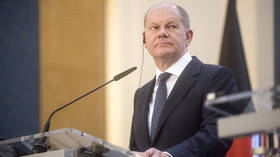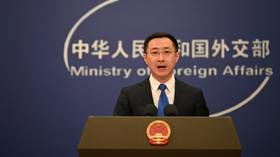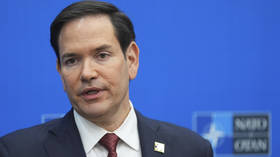Germany wants EU to cancel national vetoes

German Chancellor Olaf Scholz on Monday called on EU members to abandon the right to veto in favor of majority voting in a number of key areas. Such a move could facilitate the bloc’s future expansion.
Speaking at the Charles University in Prague, Scholz argued that changing voting practices may help to grow the EU, given that currently any bloc member can veto the accession of a candidate country. He also suggested introducing majority voting on a number of pressing matters, including sanctions and human rights.
“Where unanimity is required today, the risk of an individual country using its veto and preventing all the others from forging ahead increases with each additional member state,” the German chancellor said.
According to Scholz, “the principle of unanimity only works for as long as the pressure to act is low,” citing the example of Russia’s military offensive in Ukraine, which has challenged the way the EU approaches policymaking.
The German leader also wants the EU to switch to majority voting in areas such as taxation and foreign policy, adding that he knows “full well that this would also have repercussions for Germany.”
Scholz noted that Berlin supports enlargement of the EU, adding that he believes that the western Balkan countries, as well as Ukraine, Moldova, and Georgia would eventually join the bloc and that this will inevitably bring more differences among members.
As it currently stands, any of the 27 EU members can override a decision supported by the other countries. This gives small states significant leverage on the bloc’s policies, which can at times paralyze decision-making.














